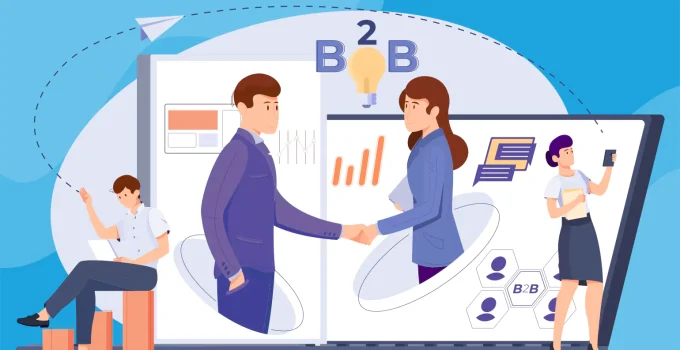Understanding Account-Based Marketing (ABM)
Account-based marketing (ABM) is a highly focused approach that tailors marketing strategies to specific high-value clients. Unlike traditional marketing, which casts a wide net, ABM targets key decision-makers and stakeholders in organizations, ensuring that every marketing effort is personalized and strategic.
Why ABM is Essential for B2B Businesses
Higher Conversion Rates
Since ABM focuses on targeted clients, it naturally results in higher conversion rates. Personalized marketing messages resonate more effectively, B2B marketing consultant, leading to improved engagement and trust.
Shorter Sales Cycles
With traditional marketing, businesses often have to nurture leads over an extended period. ABM accelerates the process by directly engaging with decision-makers who have a high intent to purchase.
Increased ROI
A targeted approach means fewer wasted resources. By focusing only on high-value clients, businesses can achieve a significantly higher return on investment compared to traditional marketing methods.
Key Components of a Successful ABM Strategy
Identifying High-Value Accounts
The first step in an ABM strategy is identifying the accounts that are most valuable to your business. This includes researching companies that align with your ideal customer profile.
Personalized Marketing Campaigns
Once high-value accounts are identified, tailored marketing messages are created to address their specific pain points and needs. This can include personalized email campaigns, customized content, and targeted advertising.
Multi-Channel Engagement
Successful ABM strategies leverage multiple marketing channels, including social media, email, webinars, and direct outreach, to engage prospects effectively.
Alignment Between Sales and Marketing
ABM requires close collaboration between sales and marketing teams. By working together, these teams can ensure a seamless experience for potential clients, leading to higher conversion rates.
How ABM Helps Close More Deals
Building Stronger Relationships
ABM is relationship-driven. By providing highly relevant content and solutions, businesses can establish trust and credibility with their target accounts.
Addressing Pain Points Directly
Since ABM is highly personalized, businesses can directly address the unique challenges of each prospect. This makes it easier to demonstrate value and persuade clients to make a purchase.
Streamlining the Buyer’s Journey
By eliminating unnecessary steps and focusing on the most relevant decision-makers, ABM ensures that the sales process is smooth and efficient, reducing friction in the buyer’s journey.
Implementing ABM in Your Business
Step 1: Define Your Target Accounts
Use data analytics and customer insights to identify the most valuable accounts that fit your business objectives.
Step 2: Research and Personalization
Gather insights about each target account and create personalized marketing campaigns that address their specific needs.
Step 3: Utilize Multiple Channels
Engage your prospects through a combination of email marketing, social media, content marketing, and direct outreach.
Step 4: Measure and Optimize
Track key metrics such as engagement rates, conversion rates, and deal closures to refine and improve your ABM strategy over time.
Why Work with an ABM Expert?
Hiring an expert in account-based marketing ensures that your strategy is executed effectively. With years of experience in B2B marketing, professionals like Alex Croucher can help tailor an ABM approach that maximizes conversions and revenue.
Final Thoughts
Account-based marketing is a powerful tool for B2B businesses looking to close more deals efficiently. By focusing on high-value accounts, personalizing marketing efforts, and aligning sales and marketing teams, ABM delivers higher conversion rates, a shorter sales cycle, and a better return on investment.
FAQs
What makes ABM more effective than traditional marketing?
ABM is highly targeted and focuses on high-value clients, leading to better engagement, shorter sales cycles, and increased ROI.
How long does it take to see results from ABM?
While results may vary, businesses typically start seeing improvements in lead engagement and conversions within a few months of implementing a strong ABM strategy.
Can small businesses benefit from ABM?
Yes, small businesses can use ABM to focus their marketing efforts on high-value clients, making the most of limited resources.
What industries benefit the most from ABM?
Industries with long sales cycles and high-value deals, such as technology, finance, and healthcare, benefit significantly from ABM.
How can I start implementing ABM in my business?
Begin by identifying your ideal accounts, researching their needs, and creating personalized marketing campaigns to engage them effectively.



